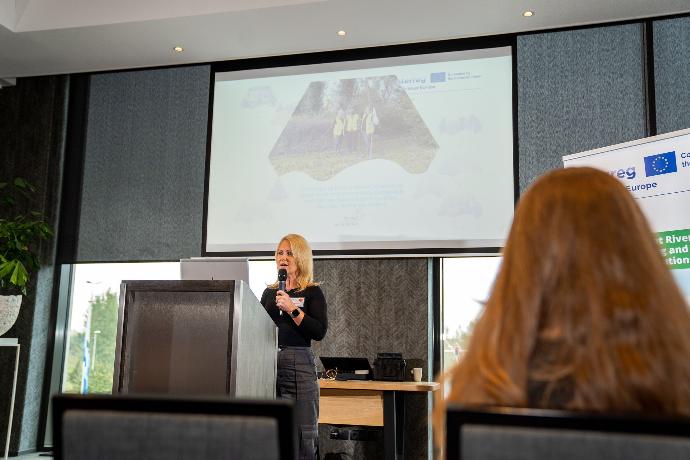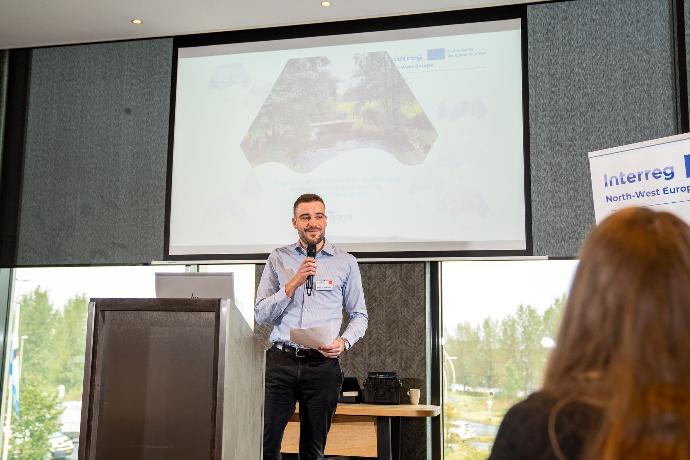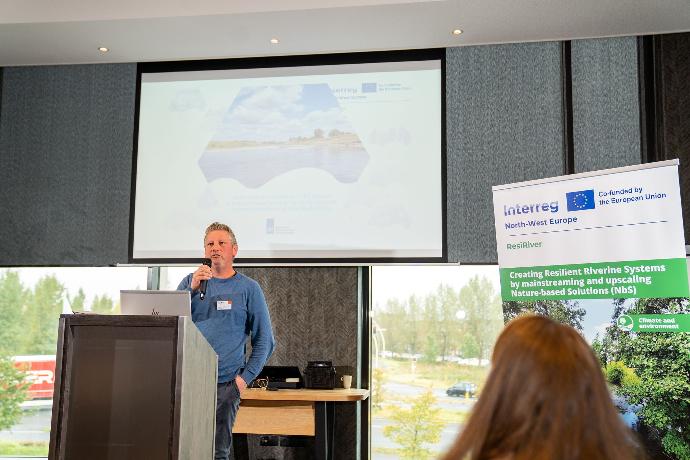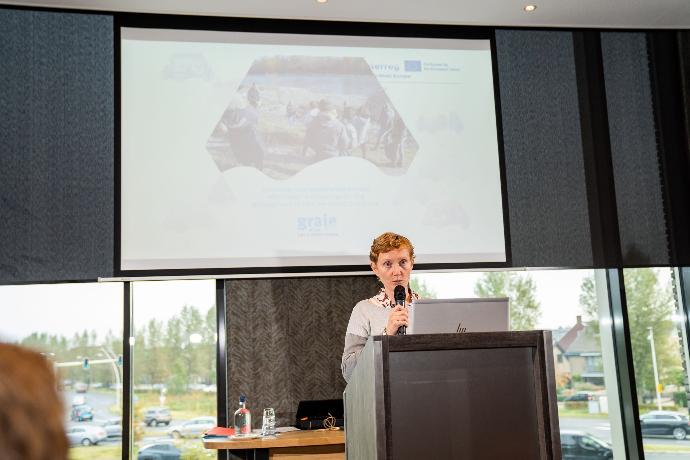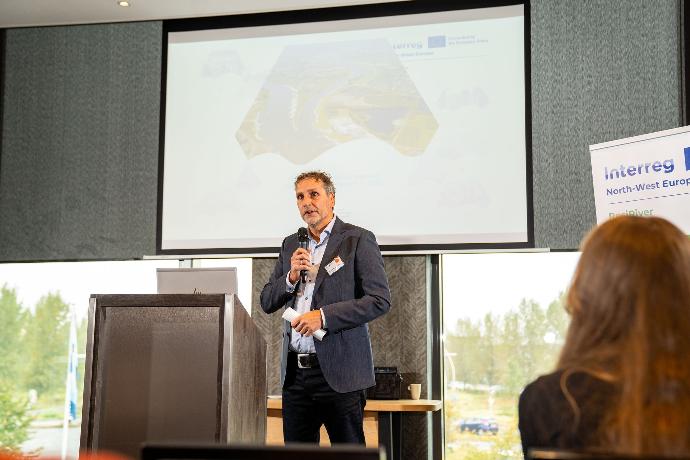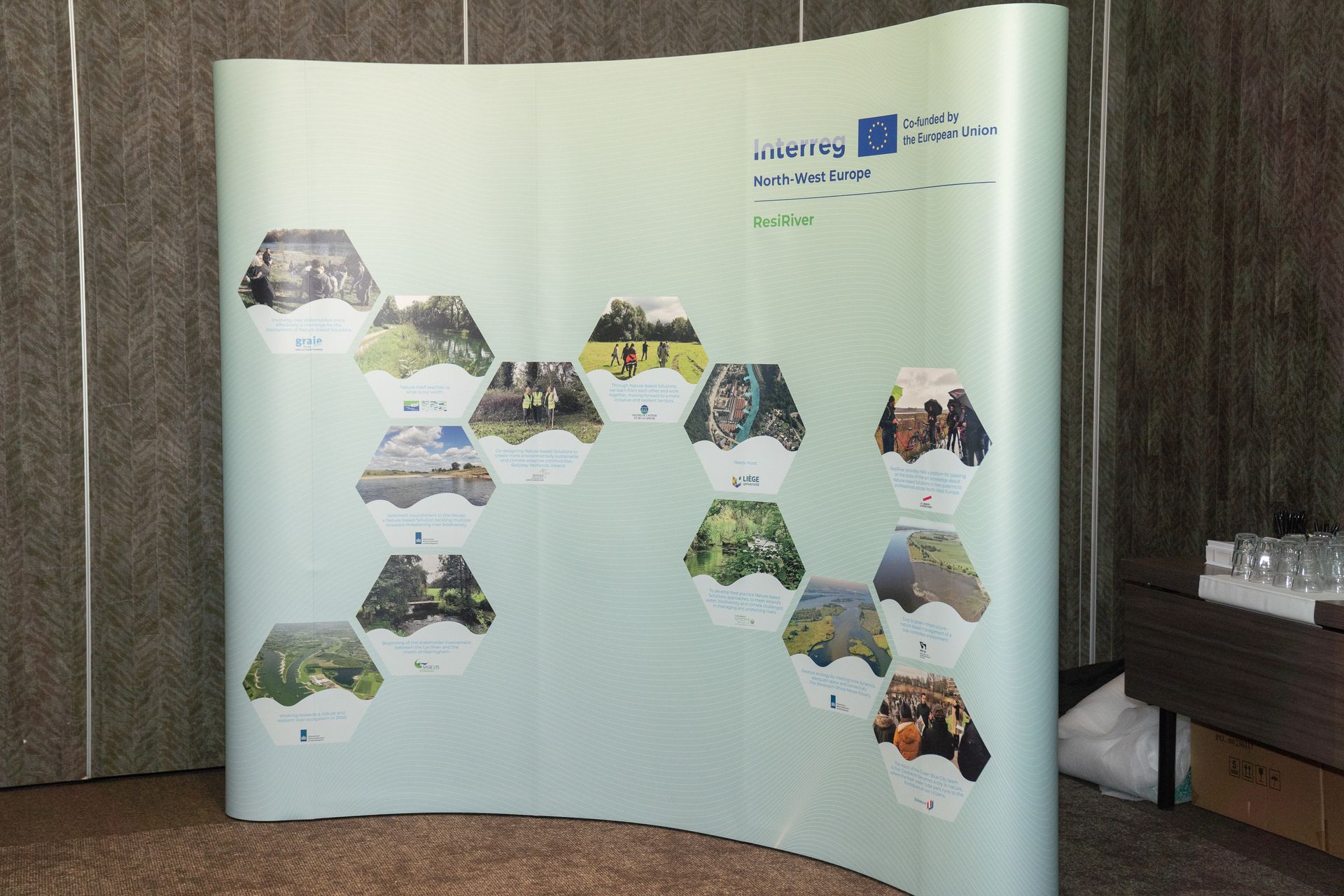Nature at Work for Safe, Accessible, and Liveable Rivers
On Thursday, October 26, 2023, the official kick-off took place for the international project 'ResiRiver' (Creating Resilient River systems by Mainstreaming and Upscaling Nature-based Solutions). In this project, subsidized by Interreg North-West Europe, partners from Belgium, France, Germany, Ireland, and the Netherlands collaborate to find answers to the question: 'How can we leverage nature to prepare our rivers for the imminent impacts of climate change?'.
Each partner plays a crucial role in the collaboration, with a focus on gathering, developing, and sharing knowledge. There are 13 pilot projects exploring various ways to store water, prevent flooding, and restore nature using natural solutions, better known as Nature-based Solutions (NbS). Additionally, predictive models are being developed, and a knowledge platform is in development for those interested in applying NbS in river systems.
'It is also about building bridges between different countries, cultures, and disciplines.’
In Lent, near Nijmegen within walking distance of the Spiegelwaal, the partners and many other invitees gathered to launch the ResiRiver project. During two fascinating excursions to pilot projects by Rijkswaterstaat (the Millingerwaard and the Spiegelwaal), the international group was updated on the integration of nature development, recreational opportunities, and the improvement of the resilience of the river Rhine.
Excursion to the Millingerwaard during the ResiRiver
launch event. Photo: © Laura Oonk
Rijkswaterstaat, the lead partner in this project, was represented by Monique Busnach, Head of the Flood Risk management department at RWS WVL. After a compelling introductory film, she explained why this project is of great importance: ‘This project is an illustration of the power of collaboration. It shows how we can innovate collectively and achieve broad use of Nature-based Solutions (NbS) throughout Europe.’
She added, ‘It is not just about creating resilient rivers; it is also about building bridges between different countries, cultures, and disciplines. Together, we can tackle the challenges of the future.’
We need to change our behaviour
Nicolas Fieulaine, Associate professor and researcher at University of Lyon, gave a presentation on the importance of behavioural science in projects like ResiRiver. ‘In crisis situations, it is crucial to involve behavioural psychologists in projects on time, for example, to understand resistance to changes,’ he said.
In practice, engineers often try to persuade with factual arguments, but change can only happen if we understand the underlying, mostly unconscious resistances well.
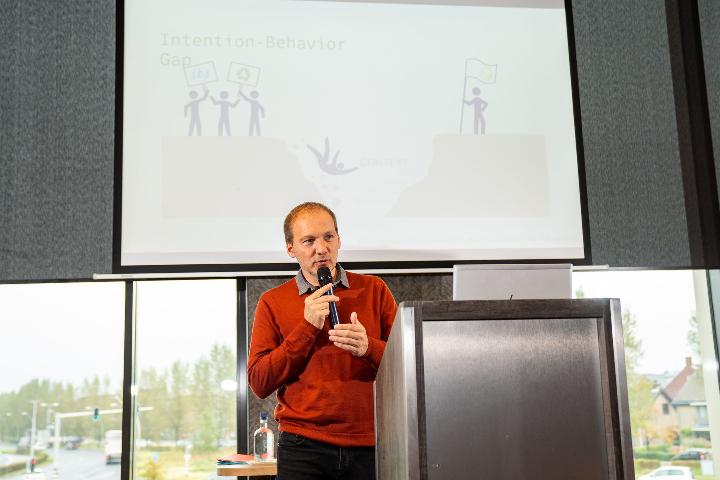 Presentation by Nicolas. Photo: © Laura Oonk
Presentation by Nicolas. Photo: © Laura Oonk
More than the sum of its parts
The ResiRiver team is rapidly coming together. This was evident from the mini pitches on the various pilot projects. There is a significant exchange of knowledge, and the different partners are well connected.
Mini pitches and all pilots in one overview. Photo: © Laura Oonk
The importance of this collaboration was also acknowledged after lunch by guest speaker Dave Crane from the U.S. Army Corps of Engineers (USACE). He guided the audience through the application of NbS in the Missouri River after the major floods of 2011 and 2019. Despite satisfaction with the work done, the contact with TU Delft and Rijkswaterstaat got him thinking. Therefore, he called for more collaboration.
On the road to a climate-resilient future
For many, this will sound like music to their ears. The ResiRiver project contributes to this. According to Monique Busnach, collaboration, an open exchange of ideas, learning through experimentation, and above all, enjoyment are the foundations of success. A great challenge that Monique kicked off with: ‘Let’s start our journey!’
All participants on the roof of the hotel in Lent.
Photo: © Laura Oonk
